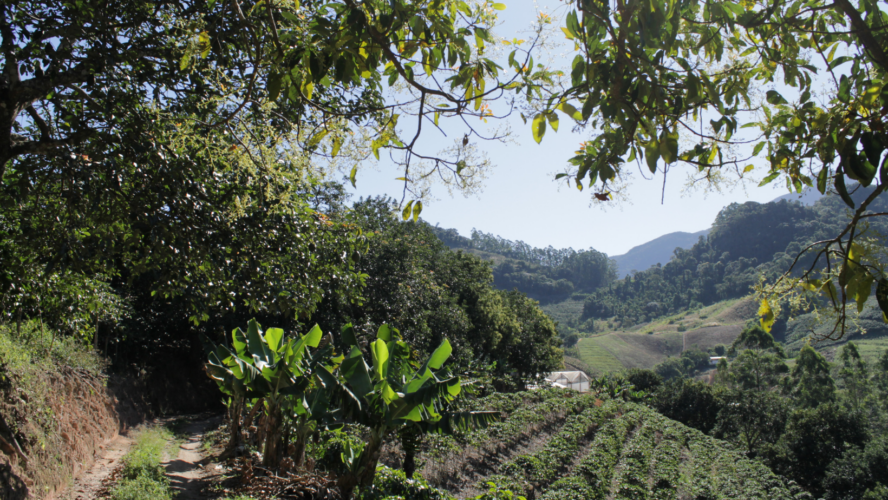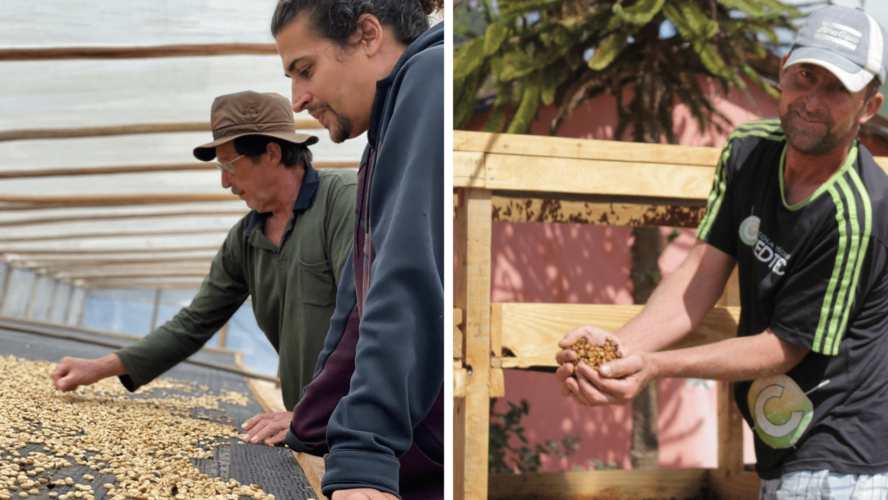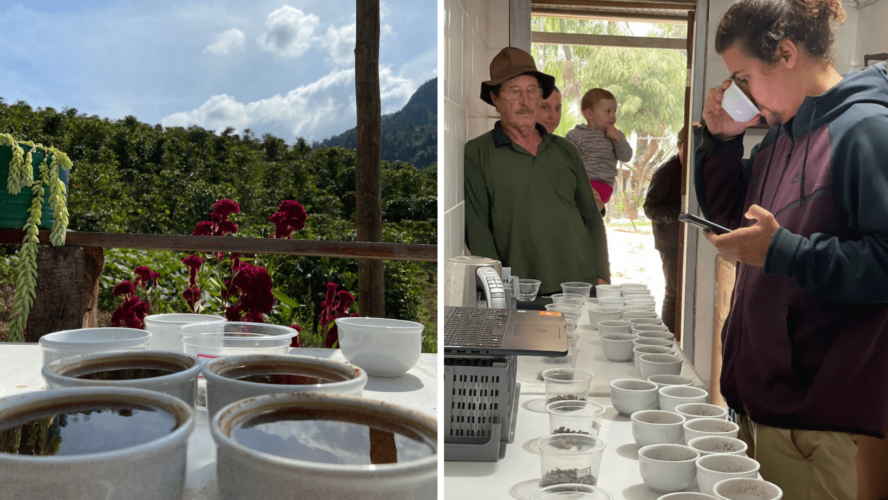Let's start with the obvious. Brazil is the leading producer of Arabica coffee. Its largest production is concentrated in natural coffees dried in patios or mechanical dryers. Broadly speaking, this is how it works. Producers deliver their harvests to cooperatives or exporters as "peeled" coffee; that is, they thresh the dried cherries at their dry mills and deliver the unsorted green coffee. The exporter then grades the coffee for export or domestic consumption. This coffee is mostly used for blends, where it plays a key role: it provides body, sweetness, and low acidity to the world's commercial coffees.

Our goal with Brazilian coffee
Traditionally, Brazilian coffee hasn't had a significant presence in specialty coffee, although this is changing year after year. In our first direct contact efforts, we had many difficulties finding our place in this country, breaking this stereotype, and finding our opposites within the country.
Our focus in 2018 had a number of established requirements. We were looking for a region where coffee was hand-picked, with producers who controlled the entire process, with a family tradition, and where the "fazendas" were "suas moradas." All of this was achieved in a very special place in Brazil: Espírito Santo. Here, the topography was far removed from the large, flat areas that allow for machine harvesting. And the producers have a vision and way of working similar to Colombia or Central America. The high-quality coffees from the region develop a very particular profile. Here, we found a small Kenya for washed or pulped natural coffees with a very complex acidity, juiciness, and presence of fruit unusual for this origin.

Challenges and opportunities
This year, we've encountered a complicated market situation due to a combination of circumstances: a poor harvest, a failed crop in Brazil, and speculation, among others. This has led to an exceptional increase in prices on the New York stock market (specifically, 233%). All of this has made it a year fraught with challenges in maintaining established relationships and moving beyond them.
The other side of the coin offered us a world of opportunities that pushed us out of our comfort zone in Espírito Santo, and we set out in search of new profiles. We wanted elegant and clean natural coffees. Classic and funky (extravagant and carefree) natural coffees, which we always love to share. Intense yet delicate. Suitable for both filter and espresso.
For this venture, we relied on our partner in Brazil, Rafael Marques and his team , to identify potential areas. We were looking for a solid base of varieties adapted to the region, such as Catuaí, Caturra, and Catucaí. And, if possible, plants that were over 10 years old, a production limitation but a sure bet for producing quality specialty coffee.
A fully equipped mobile laboratory in a van accompanied us on our trip. This allowed us to collect samples, select, roast, and cup with the producers, opening negotiations right there and then. This made our search extremely efficient, focusing on the Caparaó and Corrego do Sossego areas in southeastern Minas Gerais. Here, a large volume of the coffees produced are marketed as fresh or phenolic coffee. Their main destinations are Arab countries, where this type is highly prized, or for the production of instant or freeze-dried coffee. We had many doubts about achieving our goal.

Conclusion?
We cupped a total of 75 samples from different producers, including coffees from Espirito Santo and Minas Gerais. The washed coffees remained clean with the complex acidity of Espirito Santo. And with Theodoro Stein, we worked on a batch of honey coffee with an unusual sweetness, reminiscent of a Twix bar. This is our first espresso offering of the season.
It turned out that a small Ethiopia appeared in Caparaó and its surroundings, finding the needle in the haystack. Extremely clean naturals like Creonisio Correa with notes of very ripe and sweet strawberries, accompanied by very high-quality honey. In short, finesse in the cup. Delicate and interesting coffees whose producers had no connection to specialty coffee. That's why this is our first choice for filter coffee to open the season.
In the coming months, as new harvests arrive at our roasters, we'll be adding more batches from other small producers to our menu who, like Theodoro and Creonisio, will change your understanding of Brazilian coffees.
